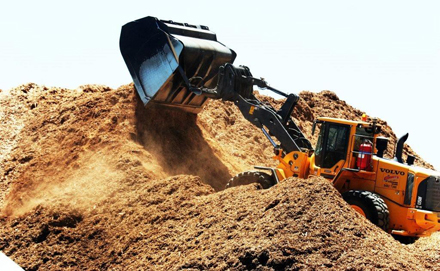
A bio-manufacturing research hub that aims to transform wood-pulp into new, useable and renewable products has been launched at Monash University. The Processing Advanced Lignocellulosics hub – or PALS – is a consortium of industry, the Commonwealth Government through the Australian Research Council (ARC) and Monash University. A total of $6.8 million over five years will be invested in PALS. Source: Philip Hopkins for Timberbiz
Industry supporters include manufacturers – Australian Paper, Norske Skog, Orora and Visy – and high-tech companies such as Green chemistry company LEAF and Circa. Other supporters are the universities of South Australia and Tasmania, and French international partner Agro Paris Tech.
The director of PALS, Professor Gil Garnier, said the aim of the hub was to transform the current bio-resource manufacturers into bio-refineries.
“To produce new products that do not exist is part of the business plan for each of the industrial partners,” said Dr Garnier, who is also director of the Bioresource Processing Institute of Australia. BioPRIA at Monash is hosting the new hub.
“Our vision is for an Australian sustainable bio-economy and how, together, we will make it a reality within the next five years.”
Dr Garnier said the research would be conducted against the background of declining markets in newsprint and fine paper, but new growth in packaging and tissues.
“Our philosophy is to work with partners, not to modify current products, but to provide additional products to what they make – to provide the technical and engineering background to make that happen,” he said.
“We have to be clever. Australia produces 1% of pulp and paper in the world. We are insignificant, our strategy is to be different – we can’t compete with the Swedes or the Canadians. However, on our terms, we can be extremely competitive.”
Hence, Dr Garnier said, the strategy was to work on new products that already have a market but in sectors that are important to Australia – food, biomedical, industrial inputs and packaging.
PALS has two big platforms – one for functional materials centred on nano-cellulose, the other Green chemicals.
“We don’t try to produce everything, but chemicals that have a value between $2 and $200 a kilo. If lower than $2, we cannot compete with oil, but more than $200 – with a specialty producer of 1000 tonnes, you can saturate the market,” Dr Garnier said.
PALS has 11 projects, each led by a PhD student, with two research fellows and one technical engineer – thus a staff of 14. Ten chief investigators push the numbers up 25 people, plus each industrial partner sends a representative.
Dr Garnier said strategic research would be conducted with industry partners, who would use the technical knowledge to develop into products.
“Industry partners are the best to do that,” he said, and they would own the intellectual property.
“A second aim is to train a new generation of engineers and scientist that are used to collaborating with industry and being part of modern disciplinary team.”
Dr Garnier said several products were under development. These included:
*Basic packaging, working with nano-cellulose that can make much thinner packaging, using less material for the same amount.
*Replacing plastic bags with ultra thin paper using nano-cellulose technology, creating products that can be recycled.
*Also in packaging, a membrane of nano-cellulose that can make a film, creating better package in place of plastics.
*Using nano-cellulose to make a super absorbent that can make a disposable bio-diaper for babies.
*In biomedical, cellulose hydrogels work for blood testing and cancer diagnostics.
*A gel made of cellulose to make better ice-cream and yoghurt. For example, Australian Paper through its high-quality pulp can make a cellulose-based gel and work with Gippsland Farmer yoghurt and ice-cream makers.
*Cellulose nanogels for agriculture to cope with global warming. This will keep water in the soil, and have slow-release fertilisers and nutrients.
“Australia is world class in biomedical. We can dominate with this, and export it. Everything is very strategic – go to the market with a technology-based product so nobody can steal it, and develop a new supply chain,” said Dr Garnier.
“That is our approach. We are small, we choose where we compete and don’t compete. Not electronics – it would go to China – but whatever we do creatively in food, biomedical, Green chemicals and construction material, we are very strong,” he said. “This will create jobs and economic growth here in Australia.”
Dr Garnier said Australians had always been very creative and pragmatic.
“PALS simply aims at applying our ‘can do’ attitude with technology to develop the uniqueness of Australian wood fibre resources into new and marketable products,” he said.







